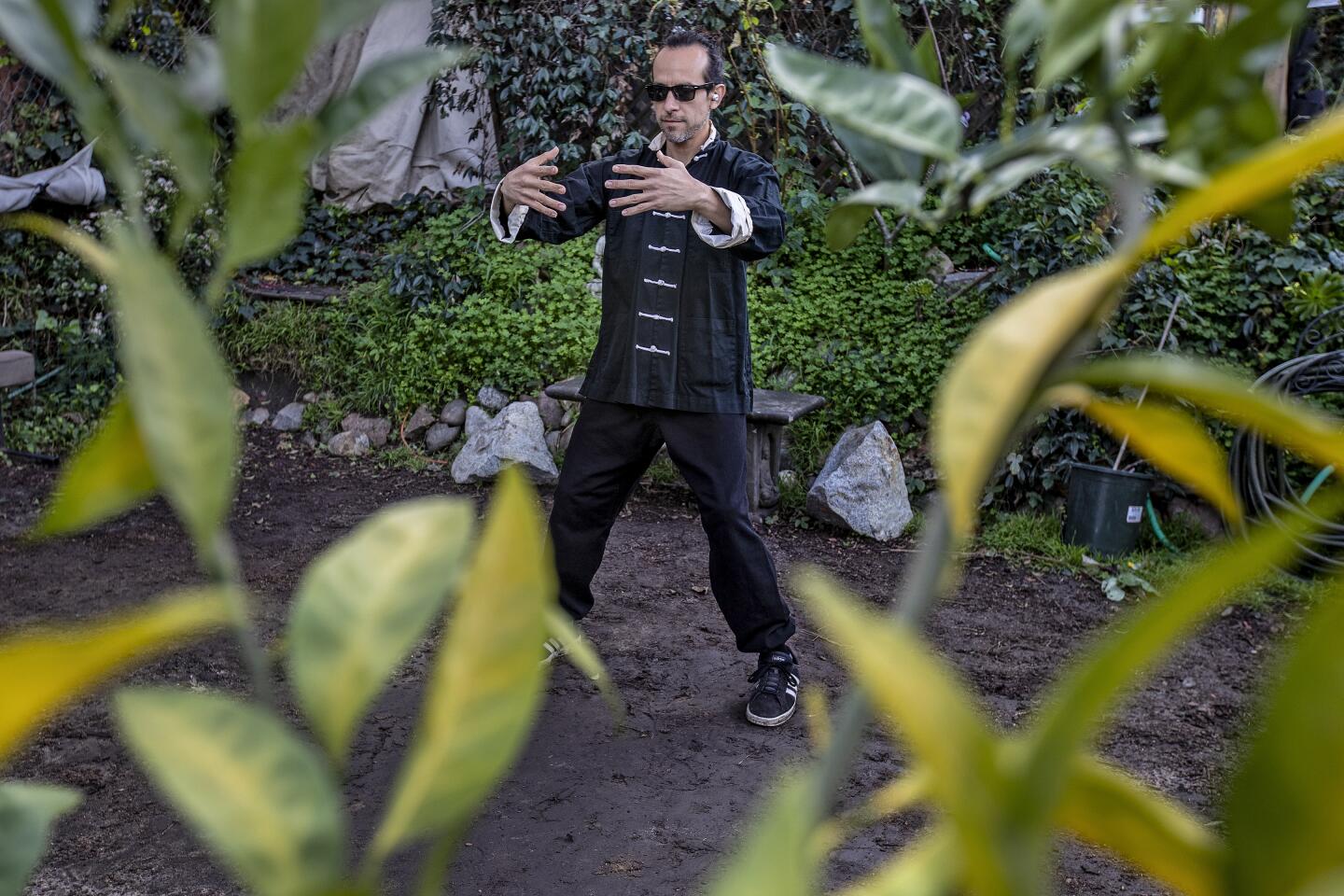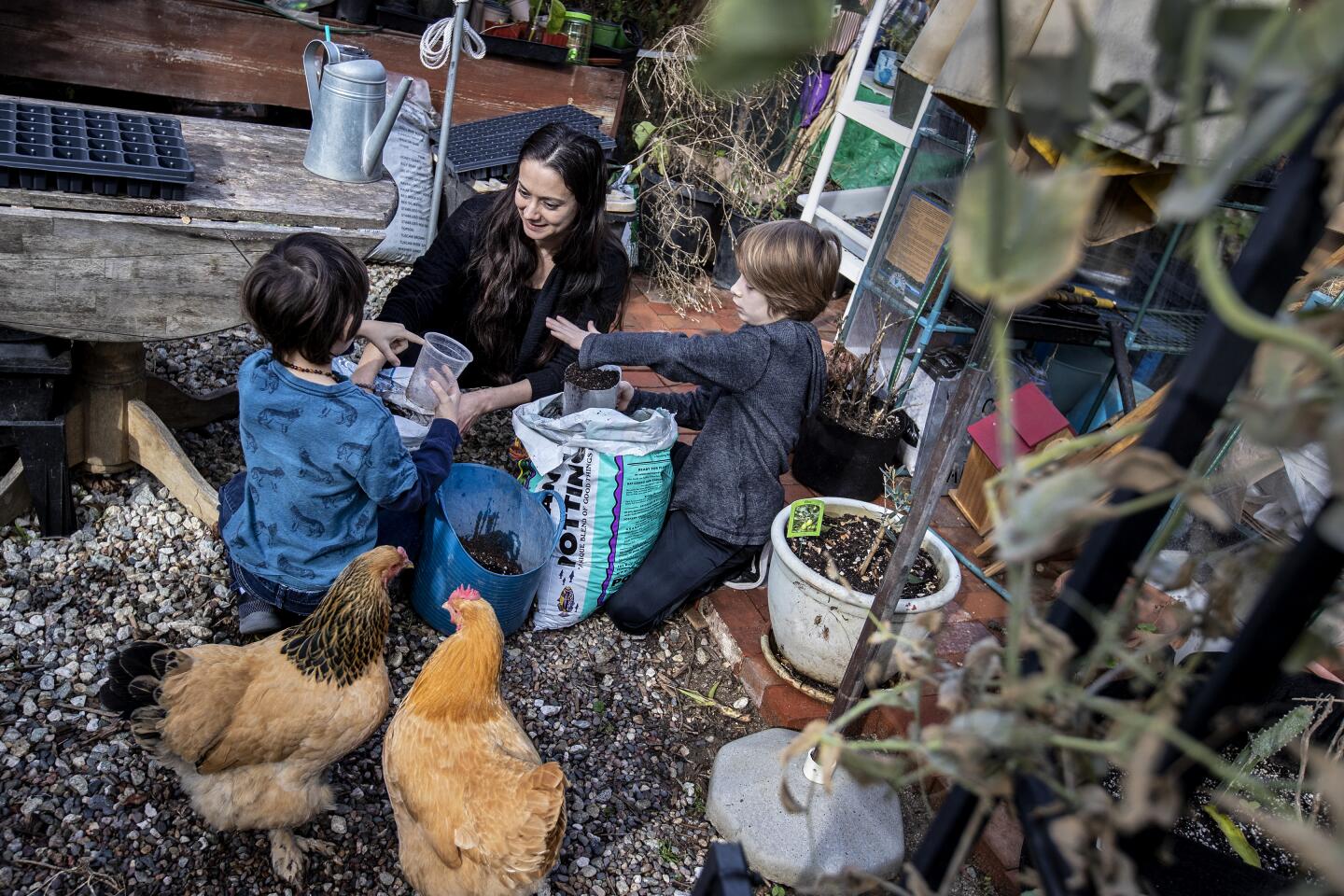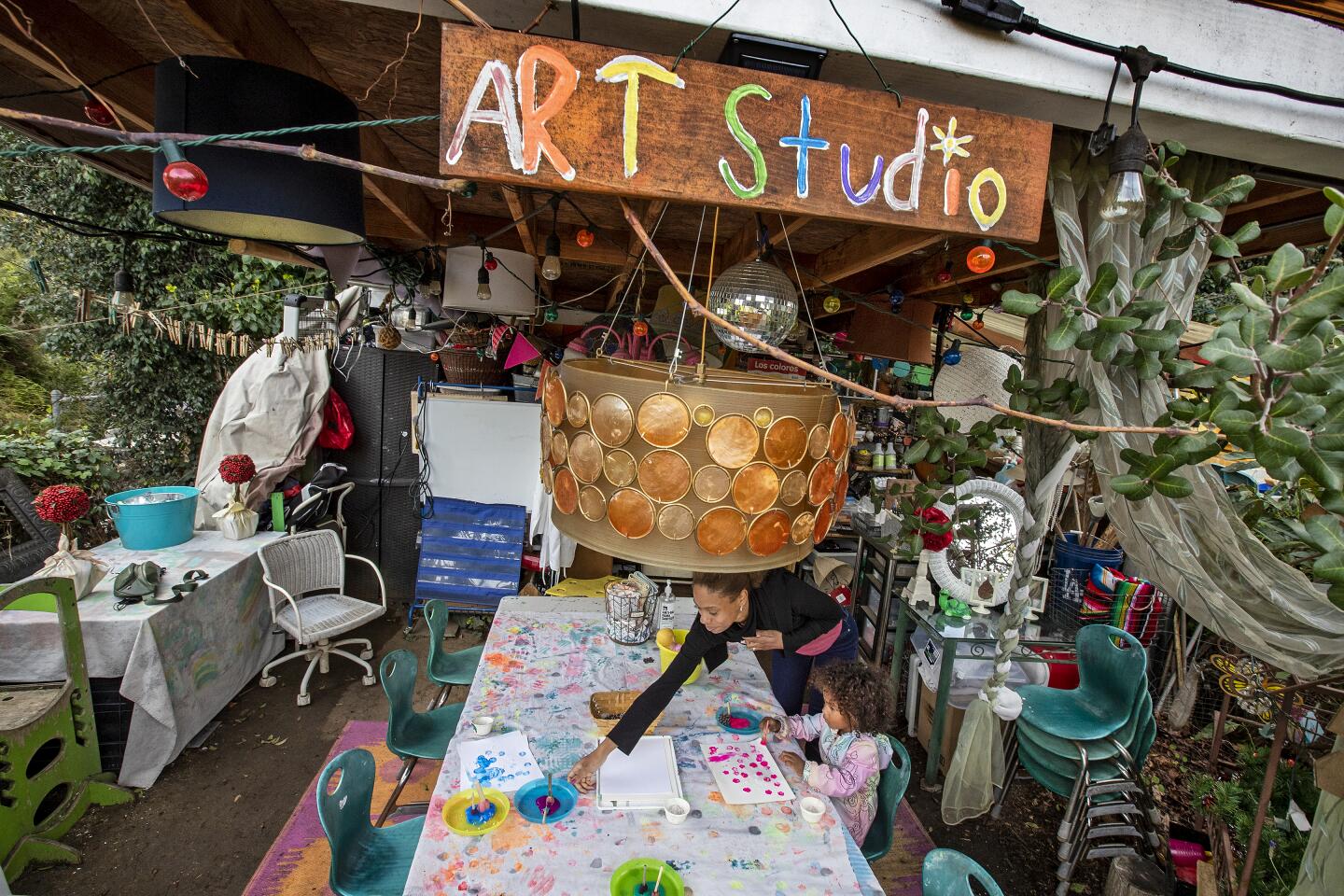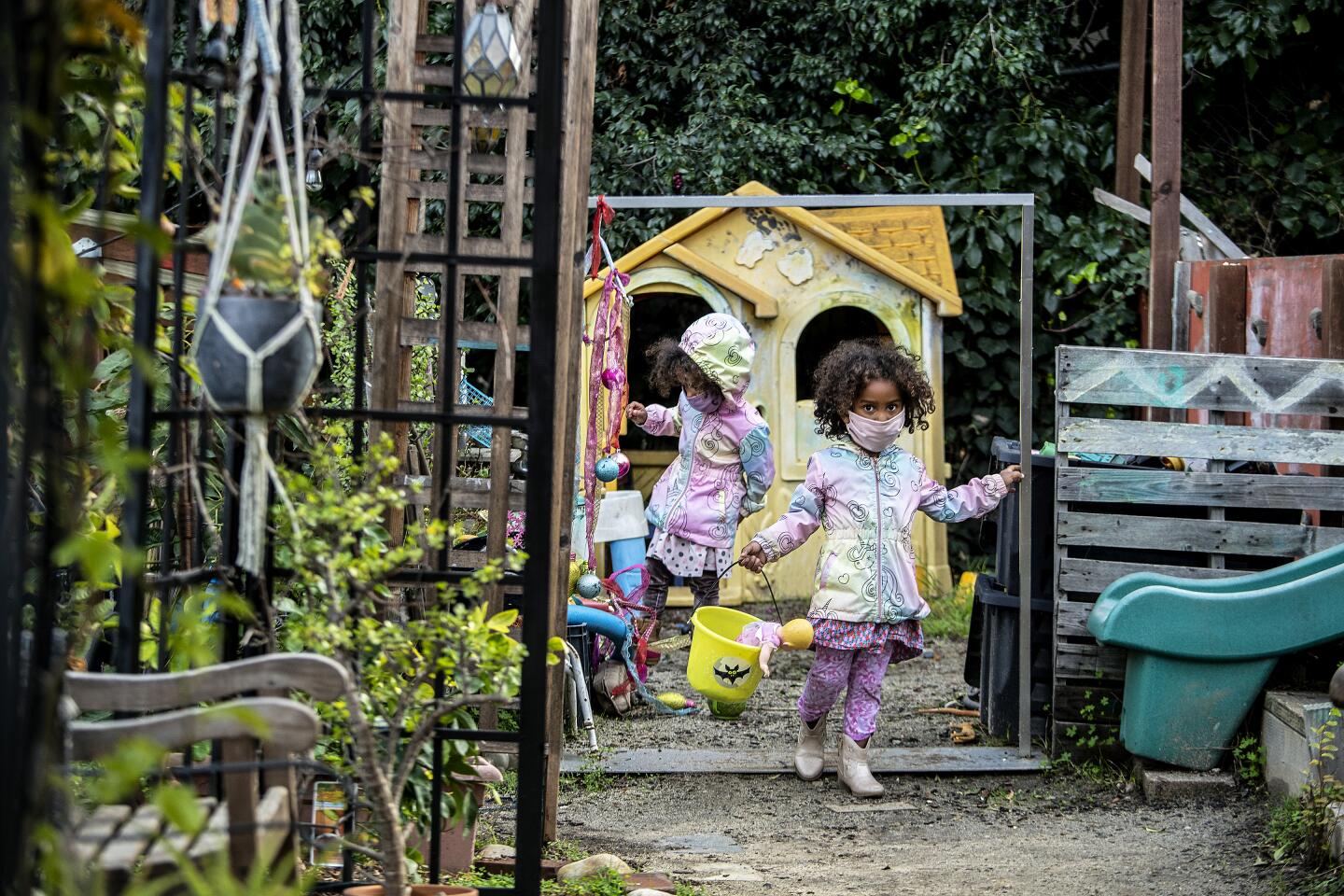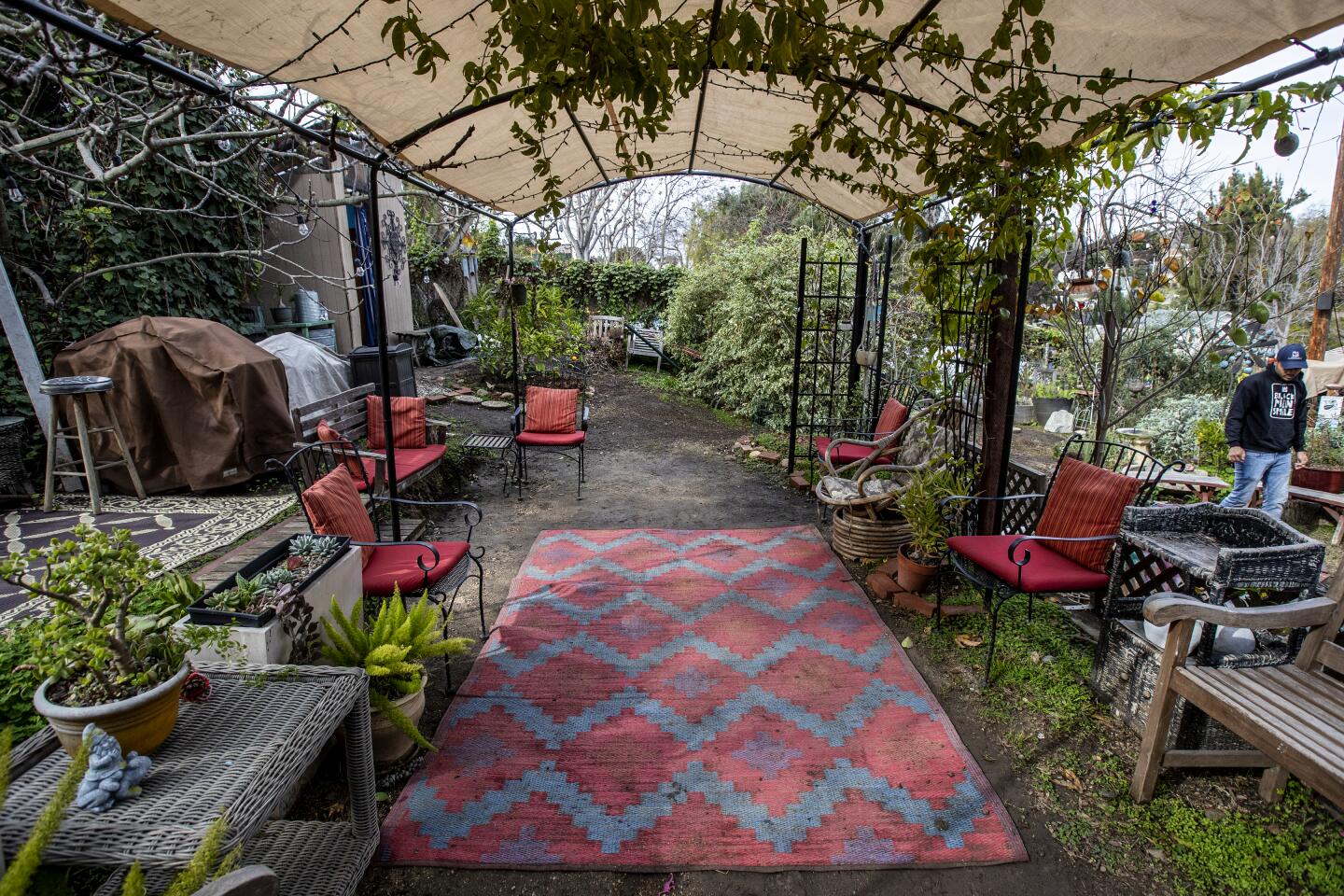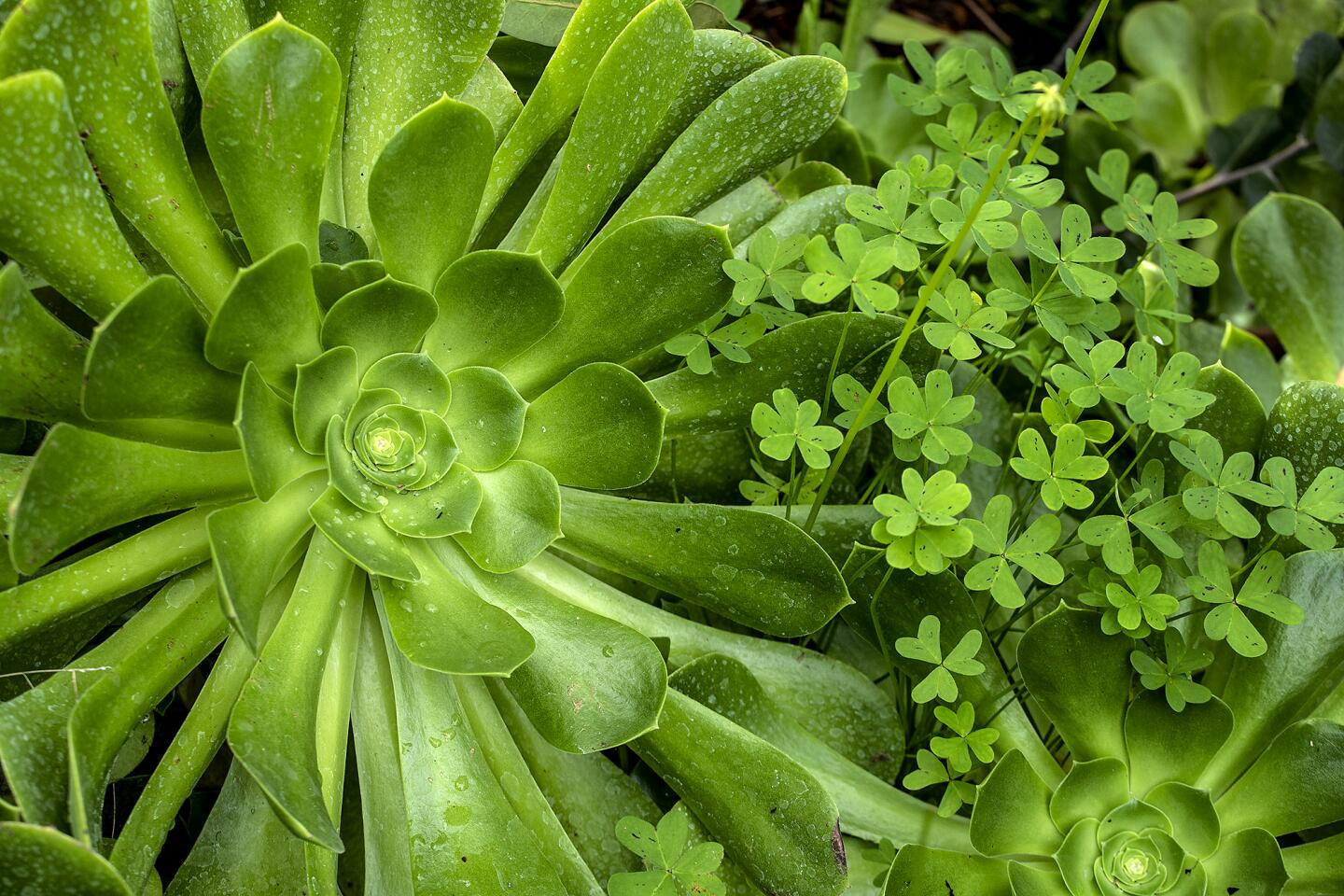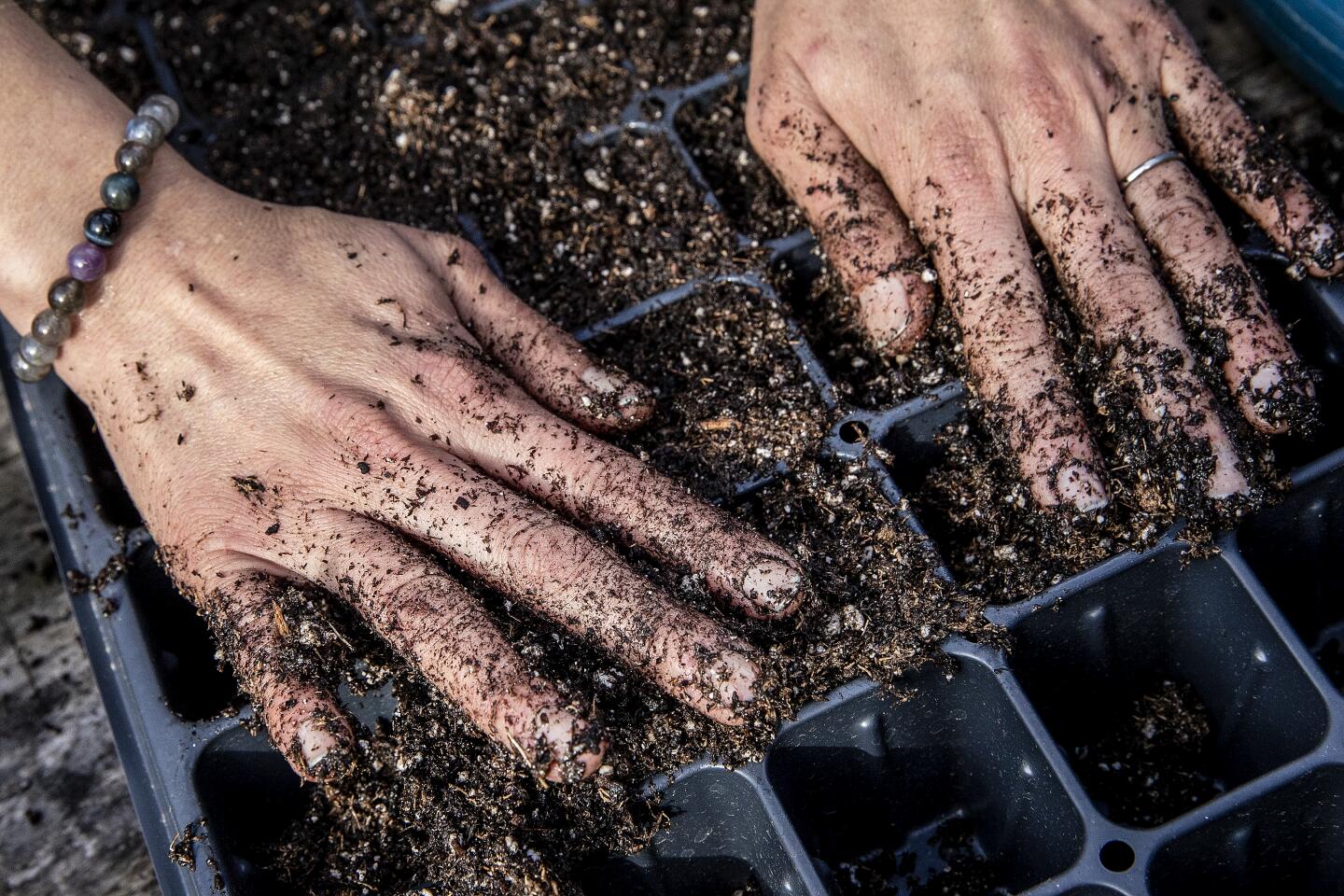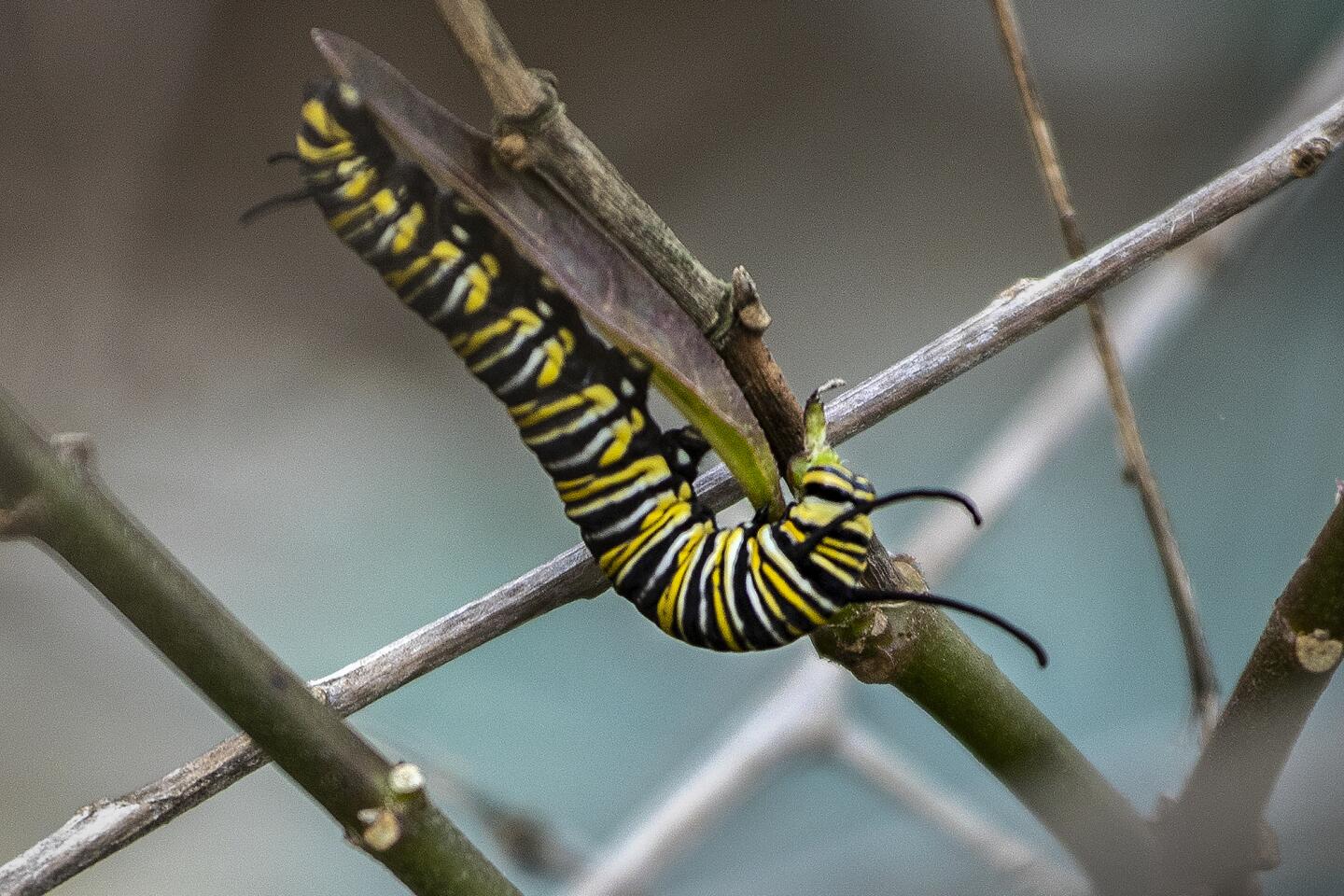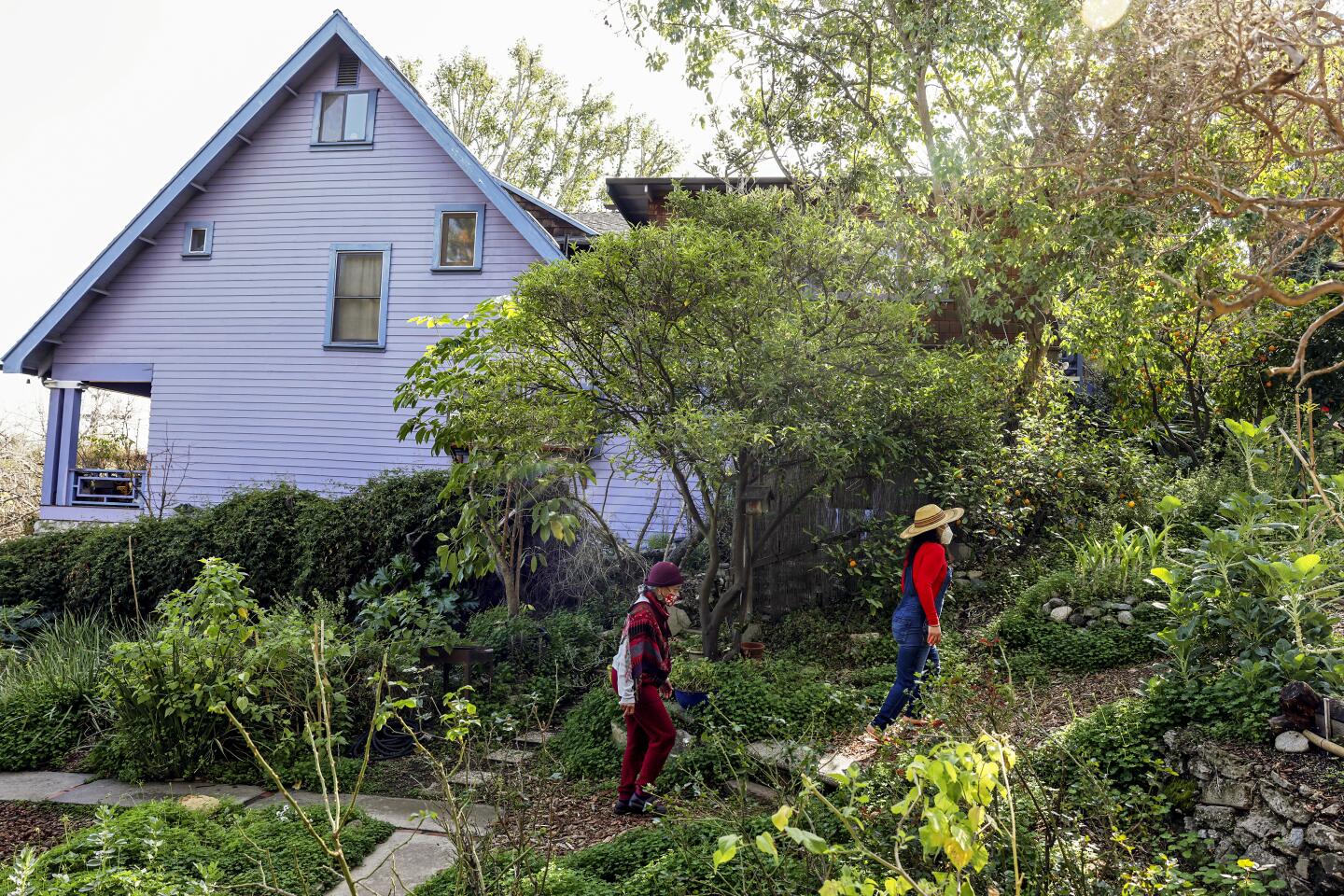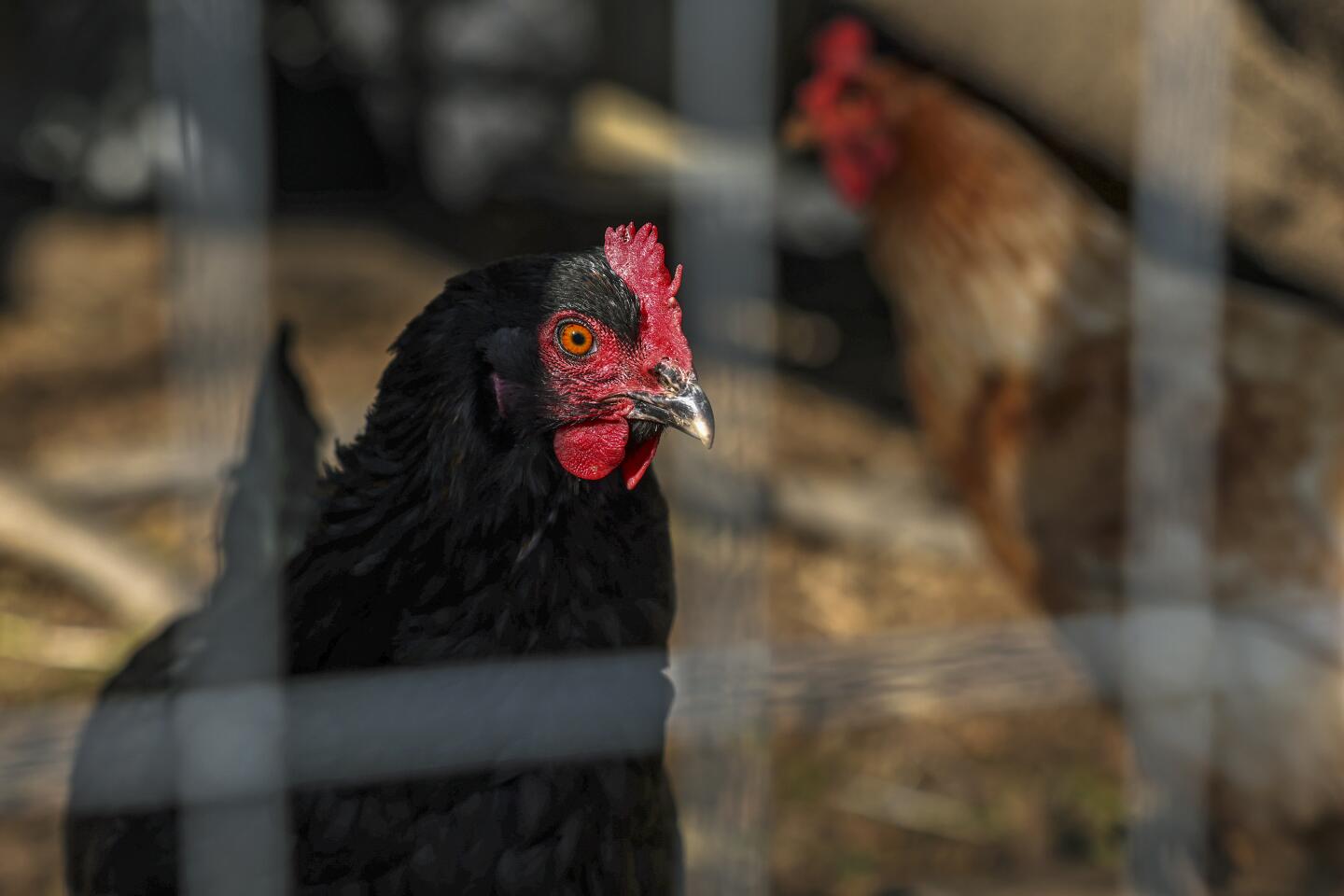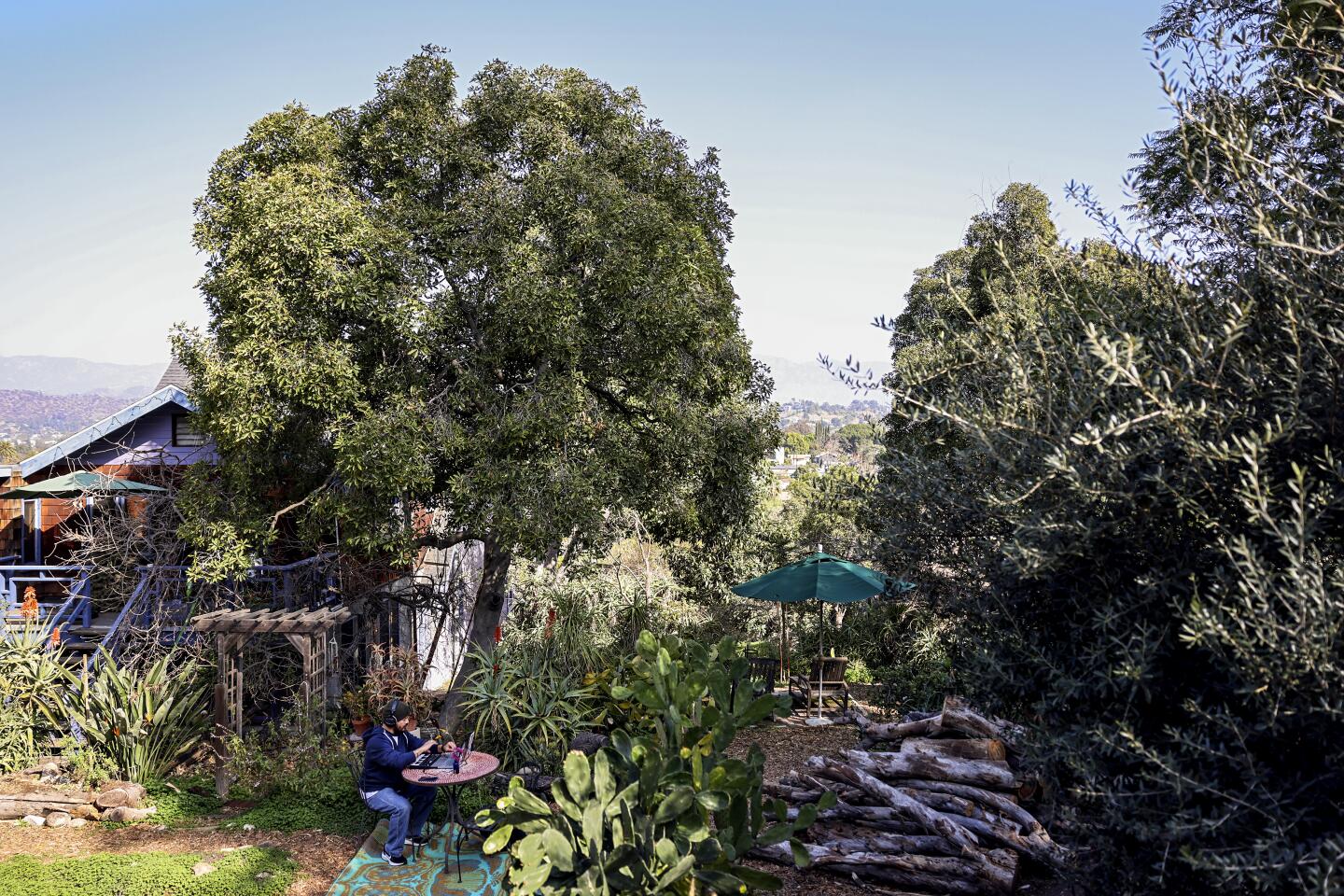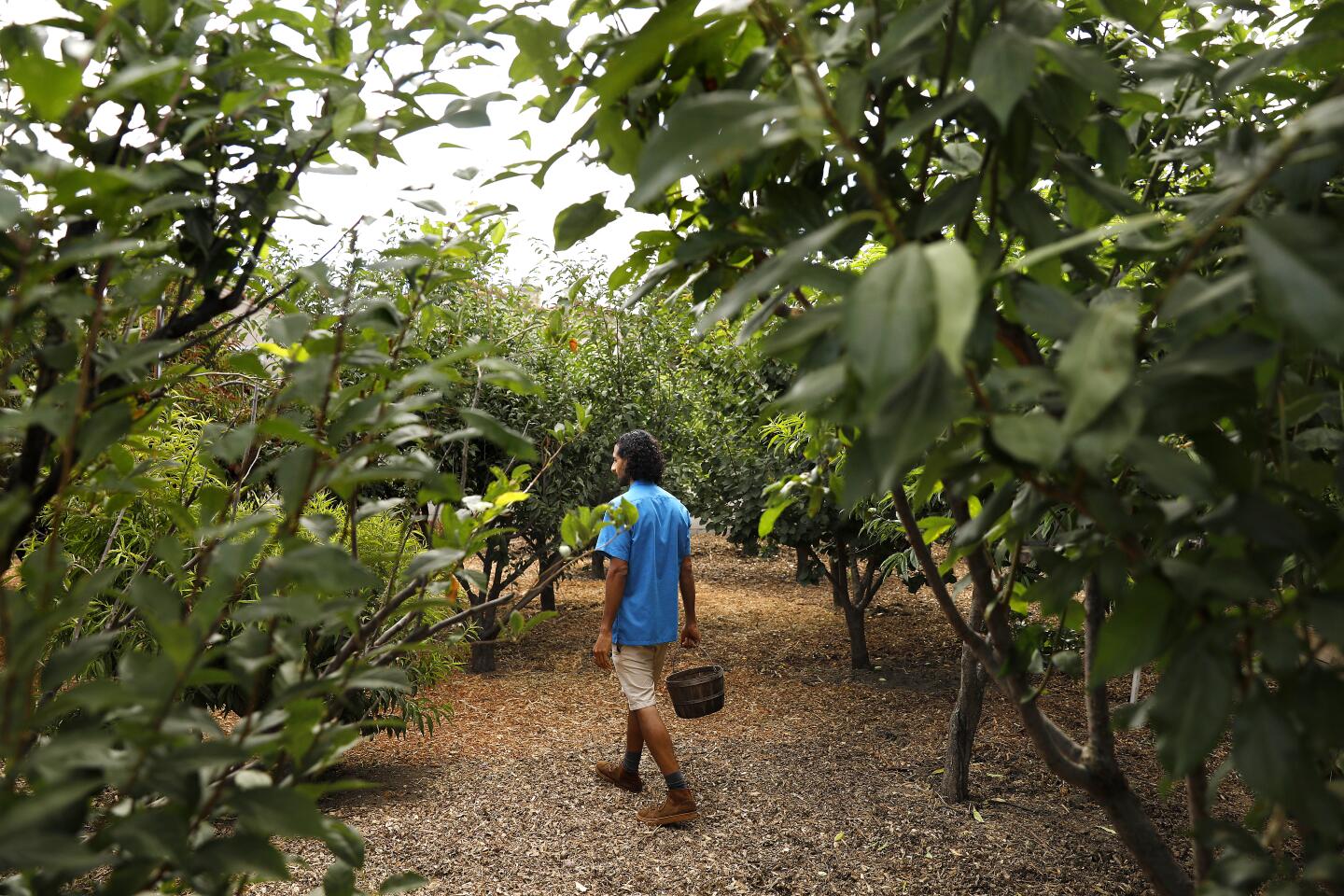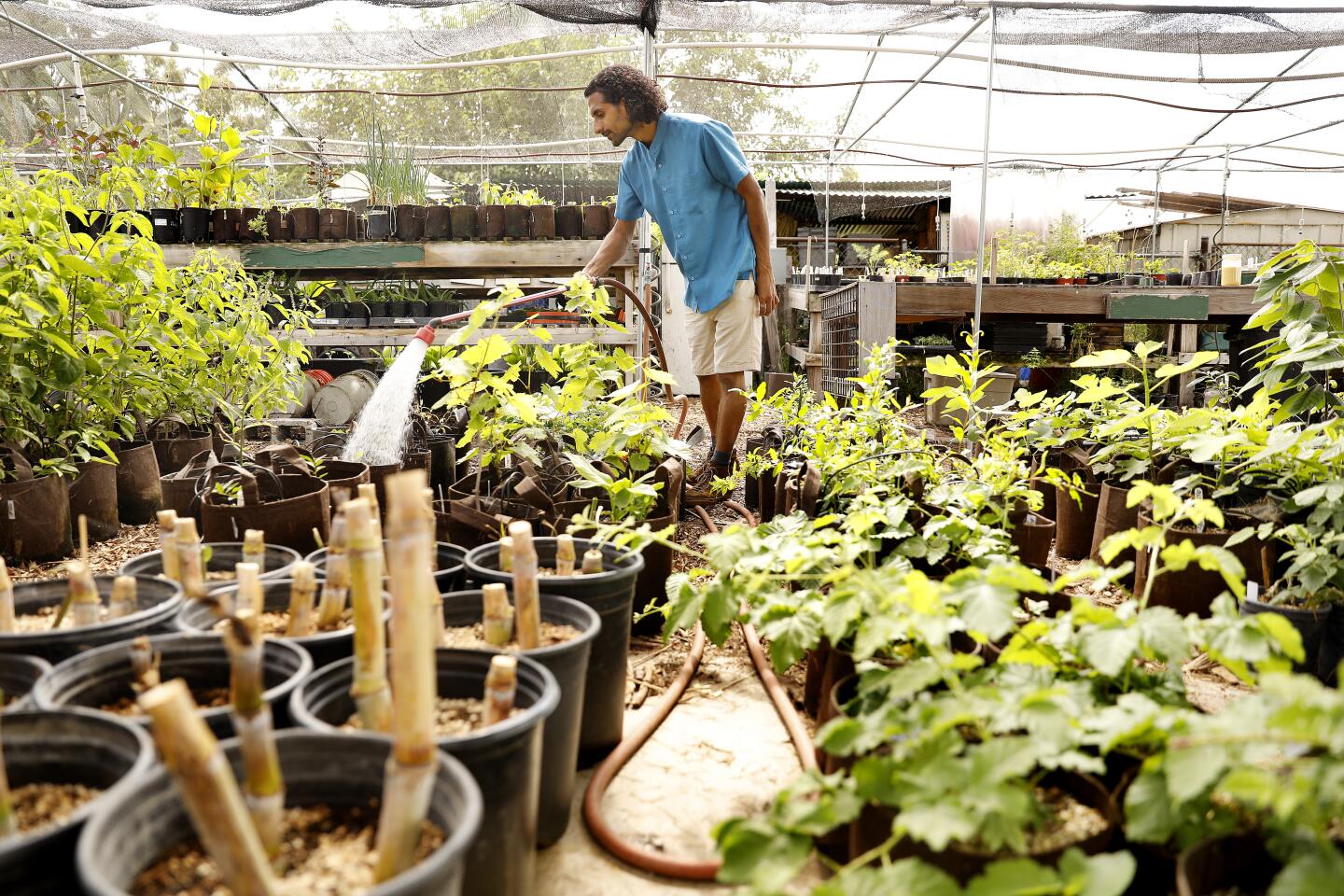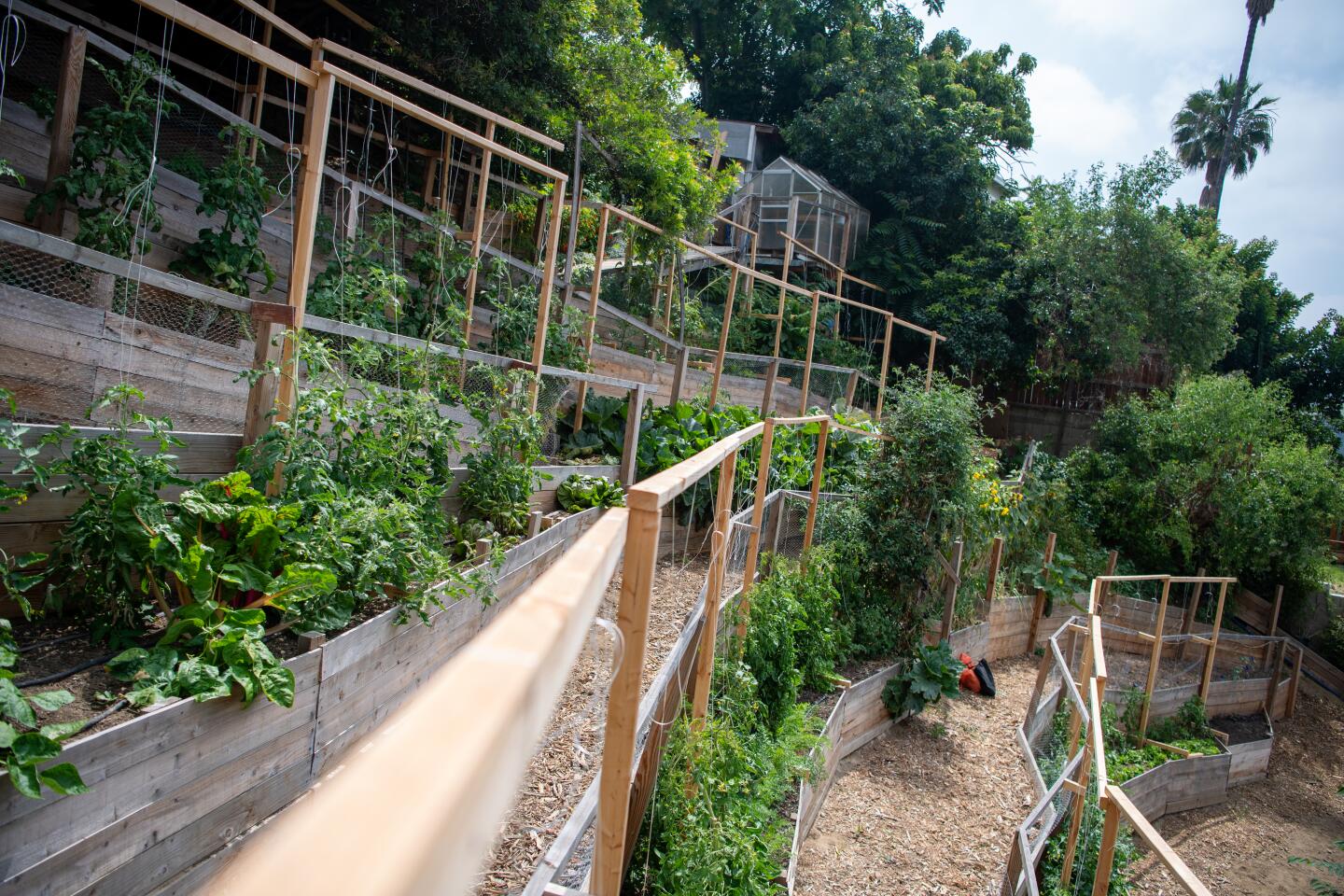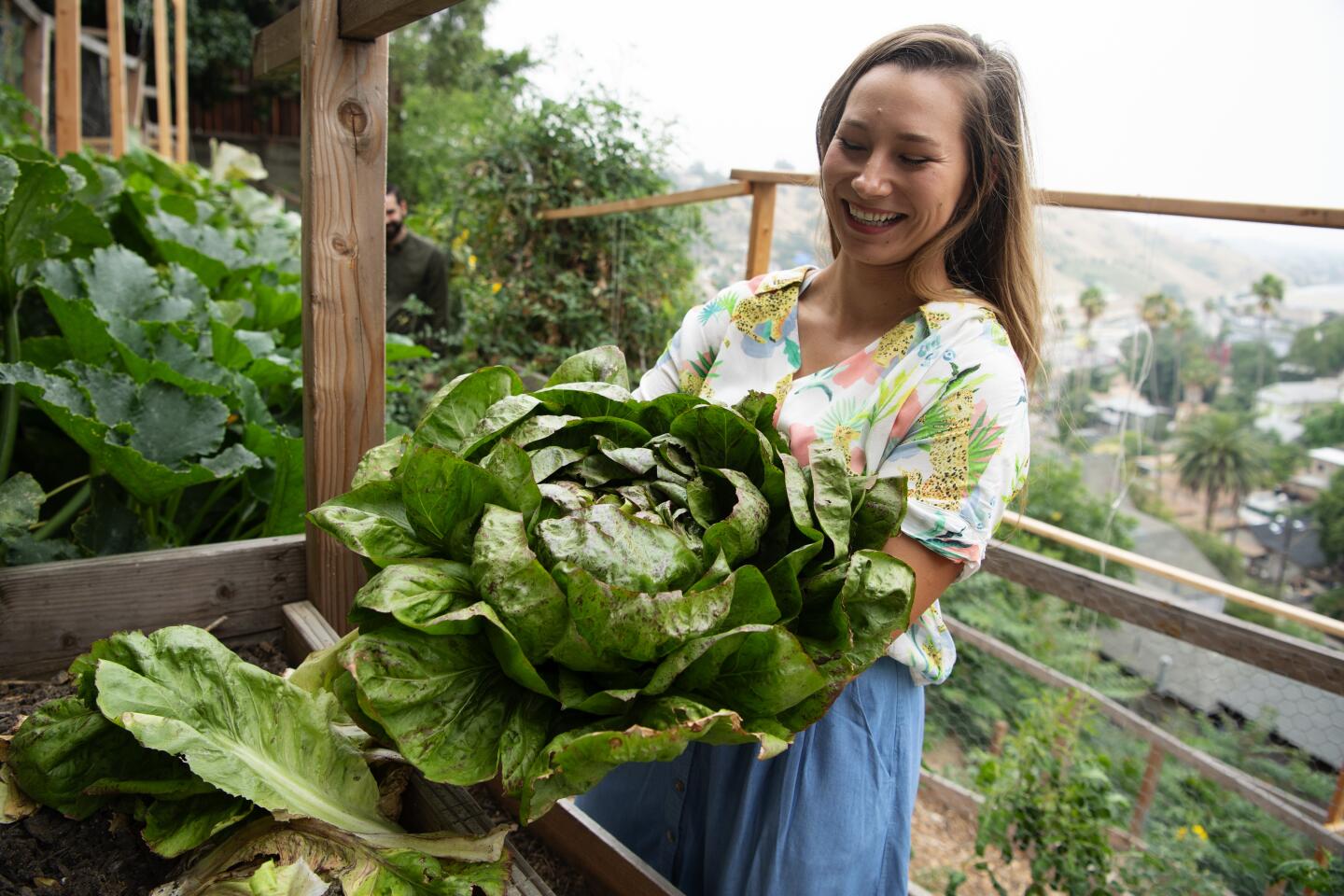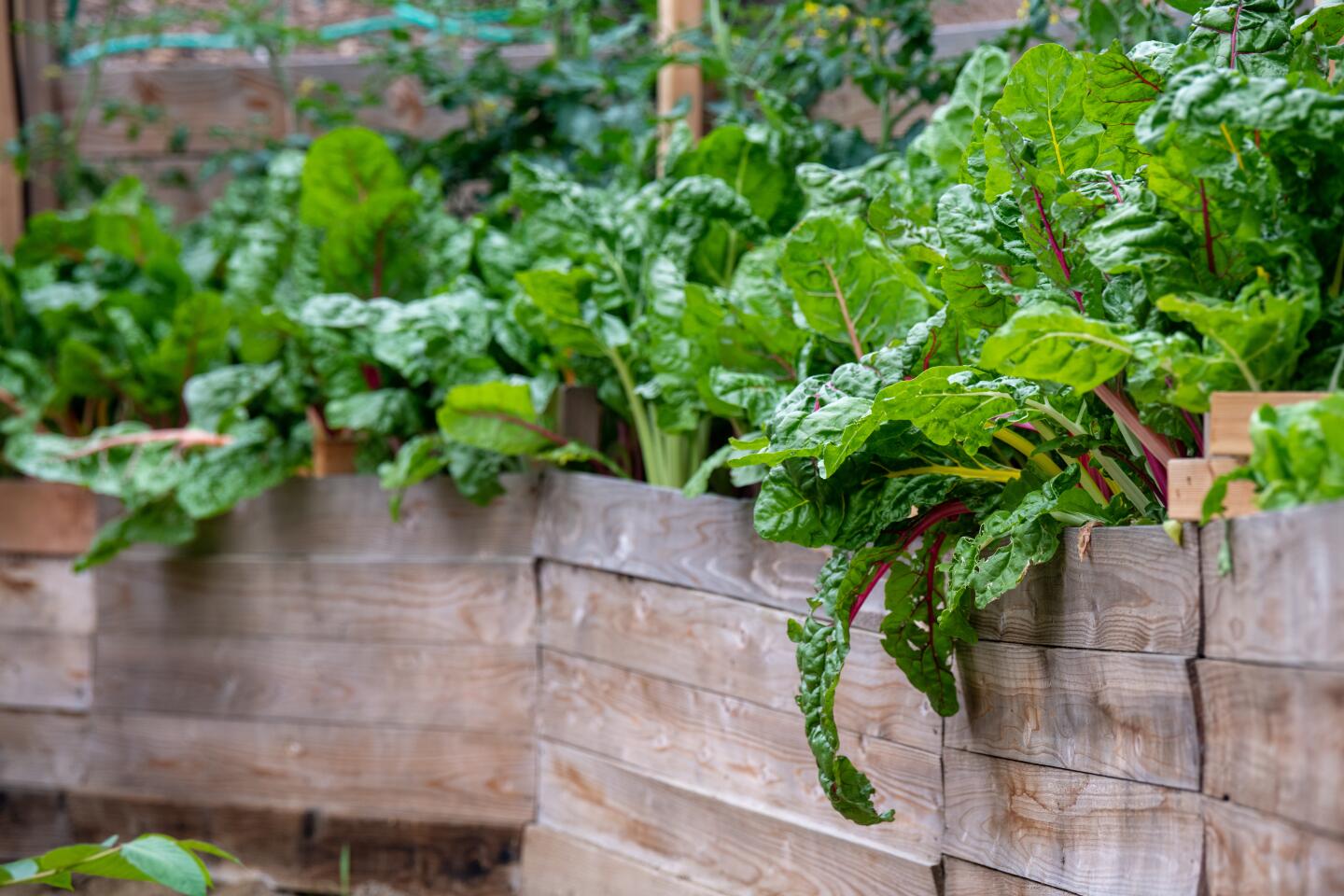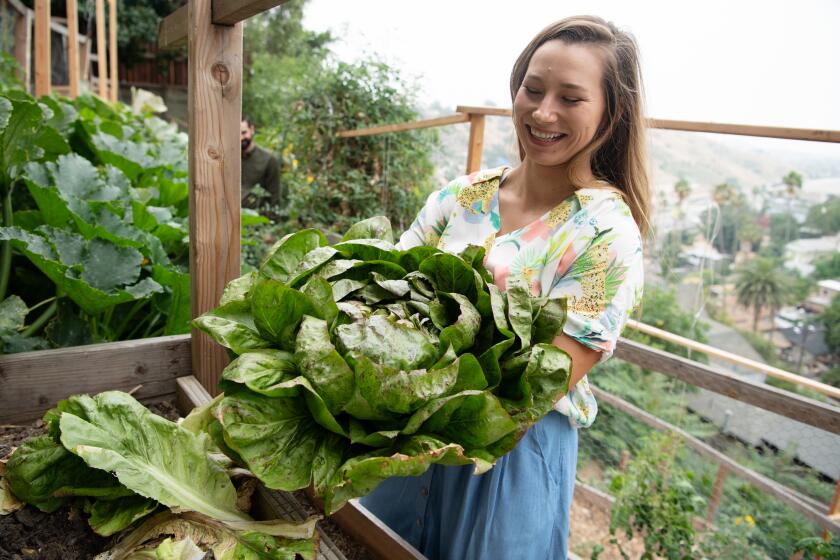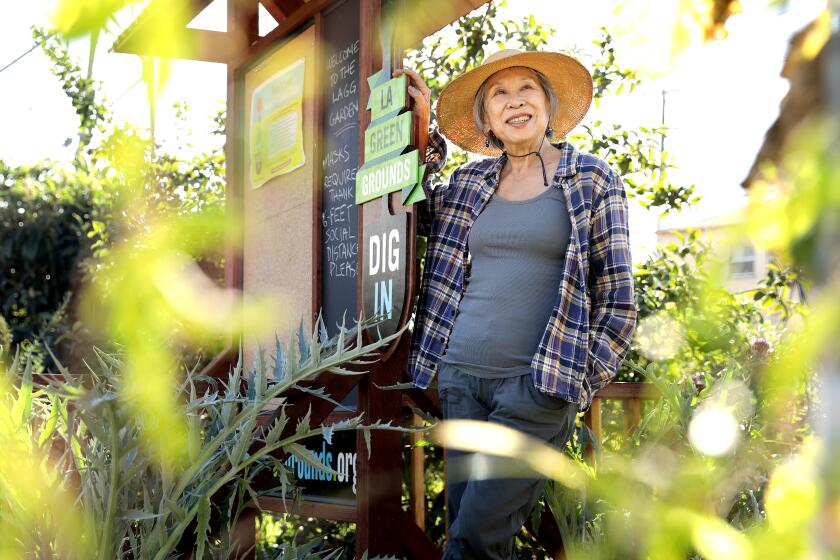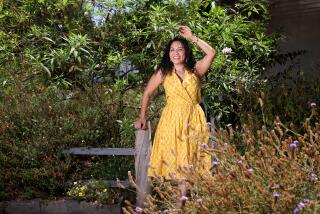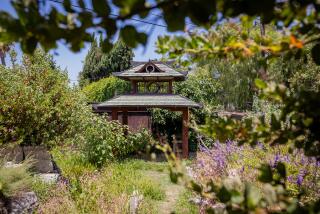Airbnb for gardens is a thing. Rent an L.A. oasis to nap, do yoga, work, it’s up to you
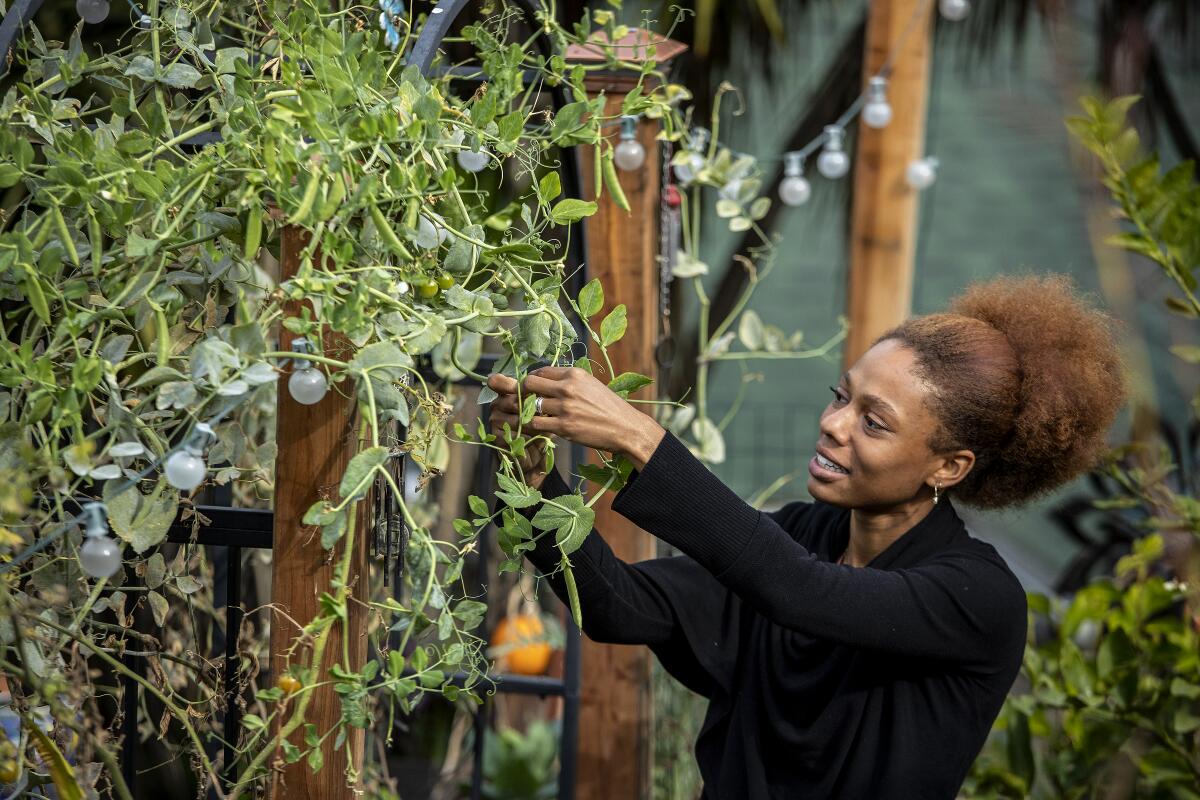
- Share via
On a quiet Thursday around 10 a.m., Aqueene Simran rolled out her yoga mat in a sanctuary of shade trees at Greenstone Farm and Sanctuary and proceeded to teach kundalini yoga on a video call.
Simran, 42, is a regular at the spacious certified wildlife habitat in Mt. Washington, where heirloom roses share the landscape with fruit trees, native plants, vegetables and free-roaming chickens.
“It’s such a beautiful space,” said Simran, who also leads meditation classes and sound baths beneath the garden’s shade trees. “Being Indigenous, I’ve learned that spiritual and bodywork is more powerful on land than in a building or a bedroom. It’s definitely healing for me to be here.”
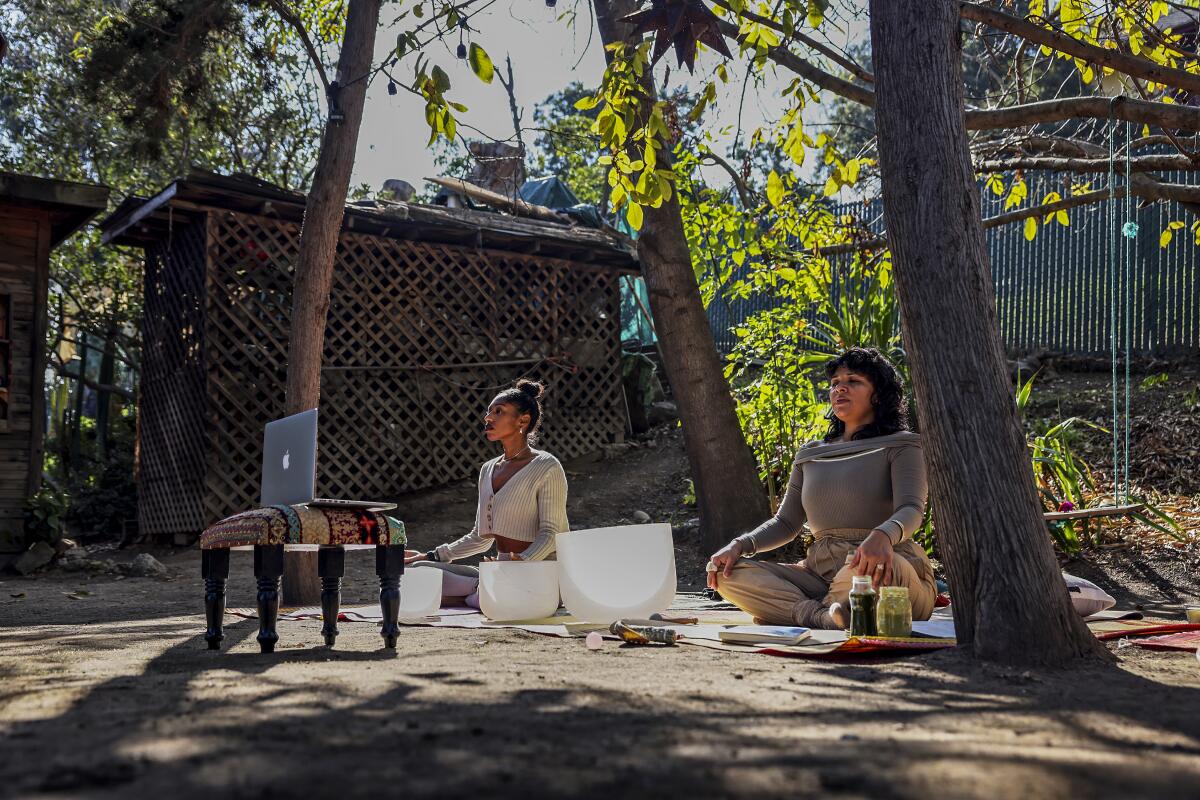
Simran rents the garden for $20 per hour from Eric and Meadow Carder-Vindel through Healing Gardens, a new online marketplace that allows homeowners and caretakers to list their organic gardens for rent, similar to the way that Airbnb lists rooms and homes for guests.
The company was conceptualized a year ago by cofounders Abhishek Arora and Rishi Kumar, who wanted to develop a business that would provide access to private urban gardens, help hosts economically in the process and, ultimately, benefit the environment.
Farmer Rishi Kumar grows top-tier fruits and offers gardening tips on Instagram: “Gardening is such an important way of connecting with the earth, connecting with ourselves and eating well.”
“I wanted to do something that would alleviate climate change,” Arora said. “The only way I knew how was to create a business that would encourage people to grow more plants and trees.”
Added Kumar: “Our fundamental goal is to fight climate change. Profits are going to go into helping these people develop their gardens further. I would love for people to go and see the gardens as they are changing. They are not visiting a place; they are visiting a being. Imagine if you could do outdoor yoga in the middle of L.A. with your friends? That’s exciting.”
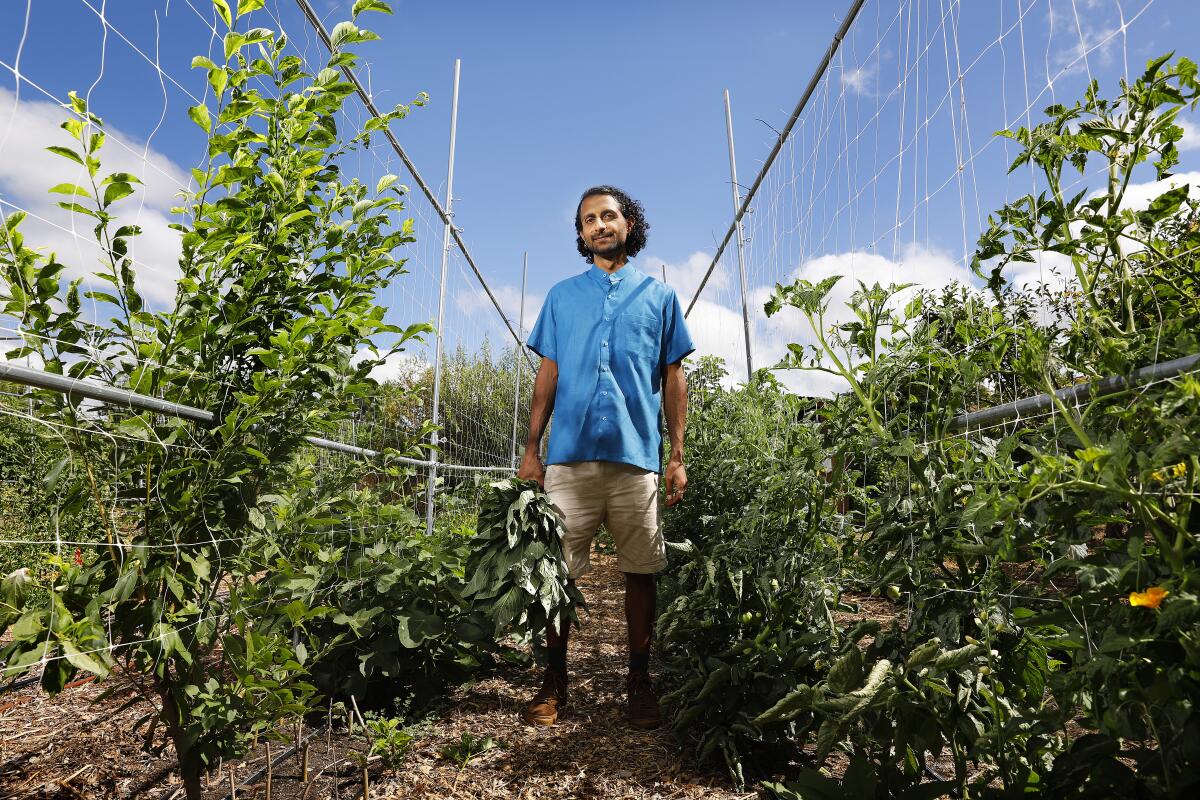
After teaching countless classes on building healthy soil, composting and saving seeds, Kumar found that the people who attended his workshops were often most interested in just spending time in the gardens. “These are sanctuaries,” said Kumar, 31. “People always talk about how healing it is for them to be on our farm. I wanted to find ways for people to enjoy the gardens without being focused on classes.”
Arora, 40, said he has experienced the benefits of plants and green space firsthand.
“I had an anxiety attack in 2019 and gardening helped me heal,” he said. “The best thing about these gardens is the wellness aspect. We thought, ‘Let’s give that experience to others.’”
Even just 60 minutes in a garden, he said, can make a difference in the life of someone who is struggling with psychological and emotional turmoil. As people continue to grapple with anxiety about coronavirus variants, vaccines, illness, even death, Kumar and Arora view the gardens as more than just an opportunity to get outdoors, but as an opportunity to heal.
“Health isn’t just what we eat,” said Meadow Carder-Vindel, who hosts GreenStone Farm on the Healing Gardens website. “It’s important to give people a way to decompress. If people can see the life cycle of plants, it can bring them calm and comfort.”
Healing Gardens is offering 17 gardens for rent throughout Los Angeles, as well as the WorldBeat Cultural Center’s Ethnobotany Peace Garden in San Diego.
Kumar and Arora hope to add more gardens and expand programming in coming months, as pandemic restrictions, hopefully, ease. The company provides insurance for the gardens, assists with advertising and, in exchange, withdraws a small processing fee. Visitors can book gardens by the hour, beginning at $15, and enjoy simply being on the property or add such experiences as yoga and meditation, art activities or romantic dinners. Amenities like Wi-Fi are listed on the website for guests such as recording engineer Breeze Prado, who uses Greenstone Farm as a place to work from the garden.
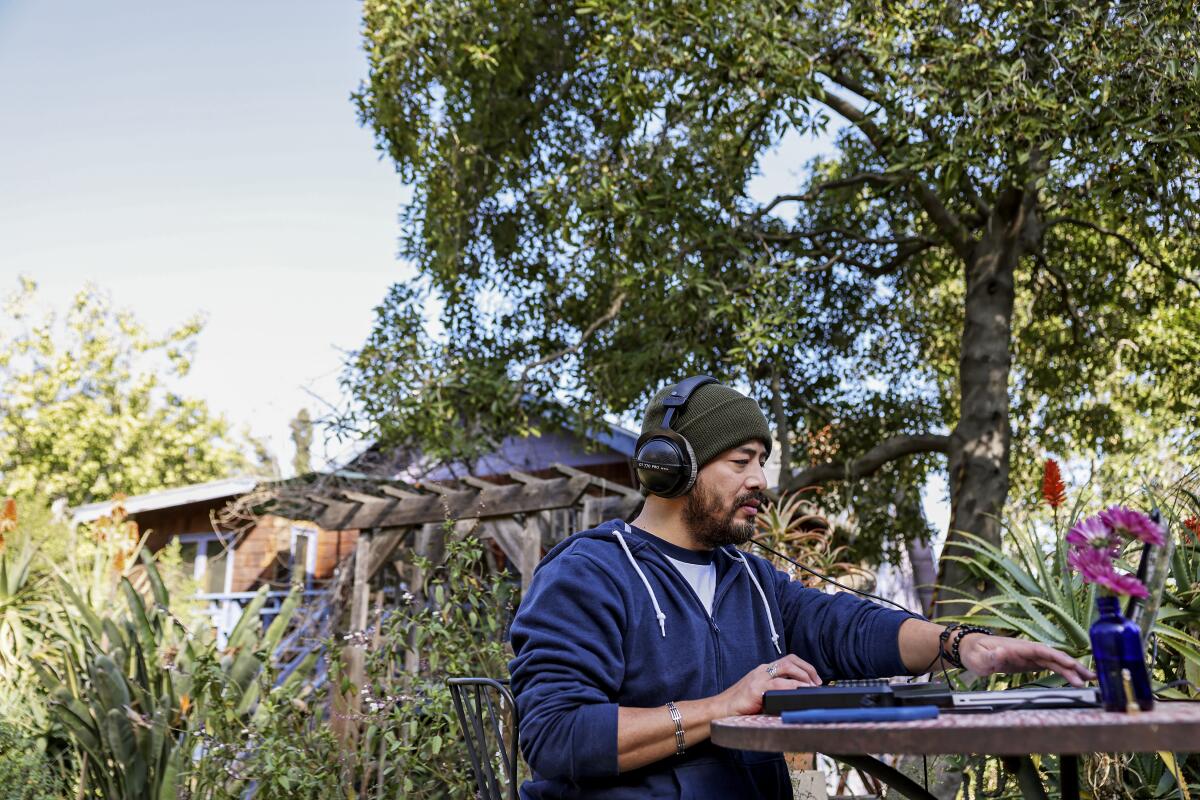
At Moonwater Farm in Compton, another garden on the website, visitors can take a guided tour with “Farmer” Kathleen Blakistone ($50) and meet the farm’s animals including baby goats, fish and Tommy the farm dog.
Kid-friendly activities are a hit at Paul and Nancy Terry’s multilevel Arts and Roots Garden in Inglewood, where families can enjoy a two-hour art activity for $40. “We have families and children who reserve space to frolic in the garden,” said Nancy Terry. “I set out the paint and they come in and have a private experience. They reserve through the Healing Gardens website, and everyone receives an updated email and reminder on their phones. We set up before they arrive. They don’t need to contact me if they don’t want to, but they have my phone number if they need anything.” The couple has also hosted tai chi classes and socially distanced comedy nights in their backyard.
Joanna Bassi’s days as a television production assistant were stressful and uninspired. She had to change her life. Her first step: “I looked at the weeds growing on my hillside and thought, ‘I want to create an ecosystem.’”
Sometimes, experiencing these gardens can be humbling. “One family who visited us hadn’t been outside in three months,” said Meadow Carder-Vindel. “The mother broke down and started crying because she hadn’t felt safe outside her home.” Another visitor, a young boy, sat in a tree above the family’s chicken coop for more than an hour as he watched the hens move along the chicken run.
With an emphasis on regenerative gardening, the green spaces serve as a master class on environmentally friendly practices. Among the gardens’ organic solutions: hugelkultur beds, composting, no-dig edible gardening permaculture and drought-tolerant plants.
Homeowners can provide guided tours for an additional fee in some cases, but it’s not a requirement. “I love the exchange,” said Meadow Carder-Vindel as she pointed out flowers and food on a walk through her garden. “But normally we’re not around. We let people wander the grounds.”
Kumar emphasized that these garden visits are meant to be a private experience. “You’re outdoors, and there is no one around you.”
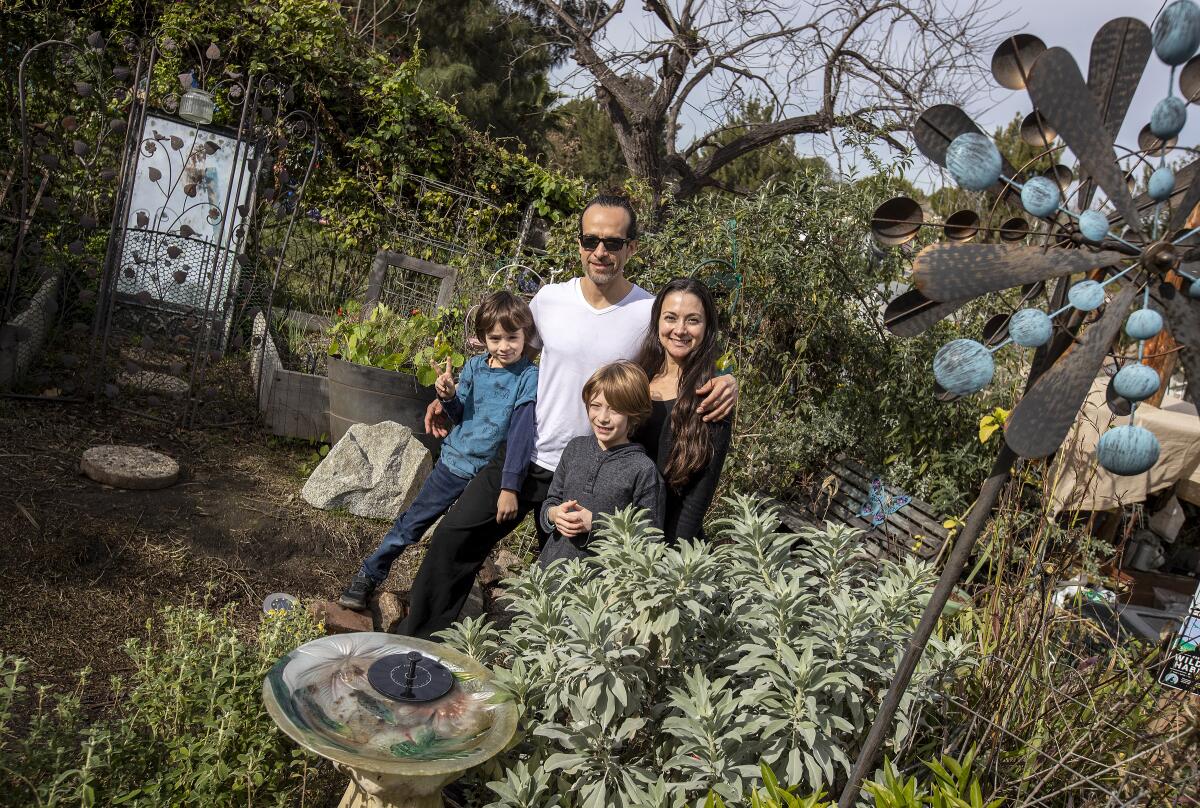
Although the company launched during the pandemic, its timing has been fortuitous as people have grown weary of sheltering in place. At the moment, the gardens are limiting visits to one pod of up to four people at a time, and guests are required to follow local guidelines when interacting with garden hosts, including mask mandates and social distancing.
Kumar supplemented his lineup at Sarvodaya Farms, his organic urban farm and nursery in Pomona, with meditation and mindfulness classes, and Christy Wilhelmi, author of “Gardening for Geeks,” plans to offer seasonal garden tours and garden planning workshops in her Culver City edible garden when it is safe. Additionally, in an effort to make the gardens affordable to all, SNAP, EBT and WIC recipients will receive reduced entrance at participating gardens.
In South Los Angeles, where it is easier to find fast food than an apple, master gardener Florence Nishida is on a mission to teach the community how to grow their own food. “There’s a lot more than peas and carrots,” Nishida says.
Kumar said he hopes the gardens will flourish and their caretakers will be supported. “Healing can be found in faraway forests, but the same healing can be found in urban farms and empty lots,” he said. “We want people to remember that we have this relationship with plants. We require plants and soil for our health. It doesn’t matter what gets people in the garden — a movie, a date, a concert — it’s irrelevant. We want people to remember that these spaces are important for all of us.”
For Meadow Carder-Vindel, who lives on her property with four generations of her family, the garden is central to her health and the health of her guests. “We are fortunate to have this space,” she said. “It feels right to share.”
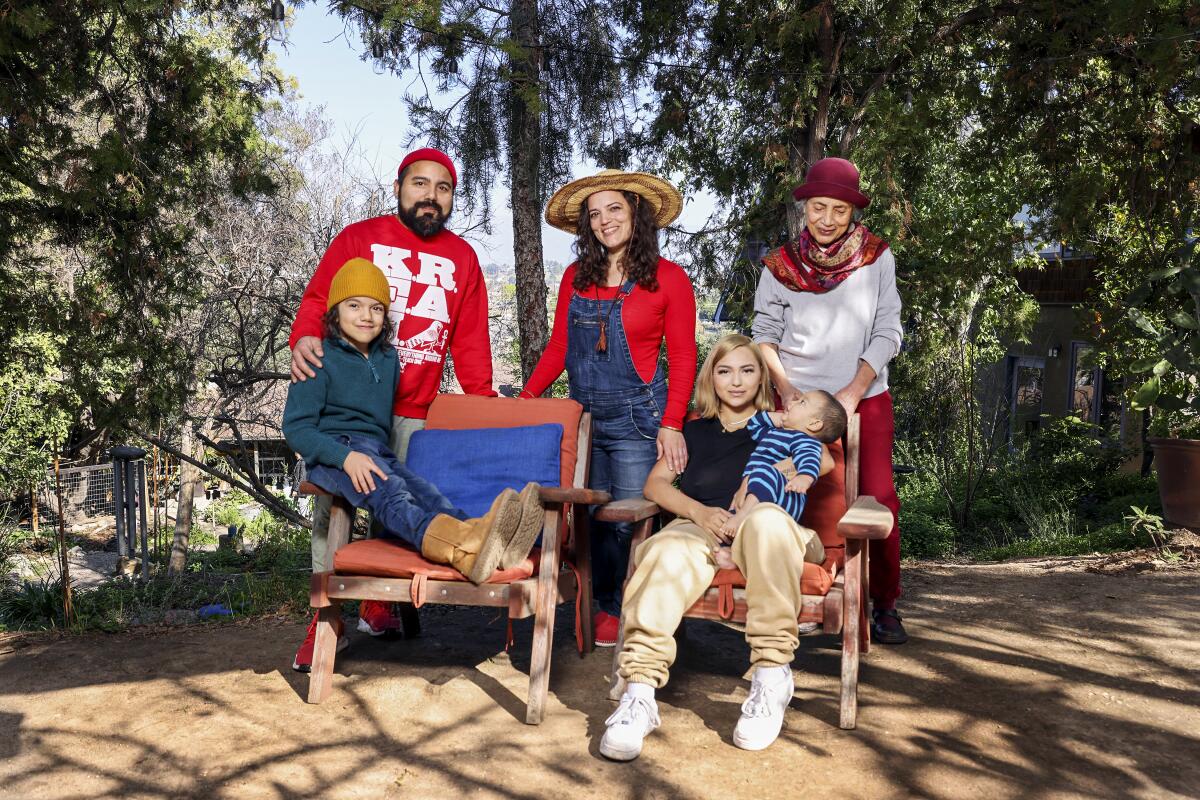
More to Read
Sign up for The Wild
We’ll help you find the best places to hike, bike and run, as well as the perfect silent spots for meditation and yoga.
You may occasionally receive promotional content from the Los Angeles Times.

